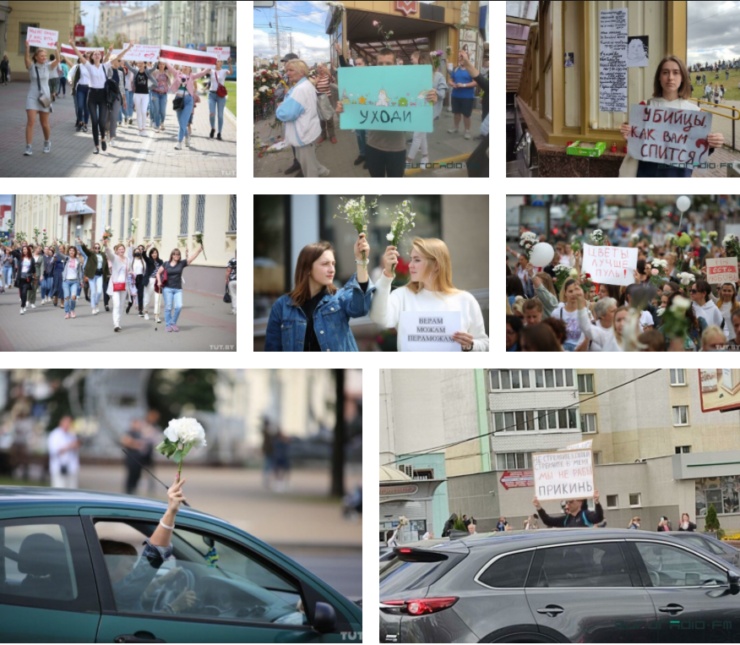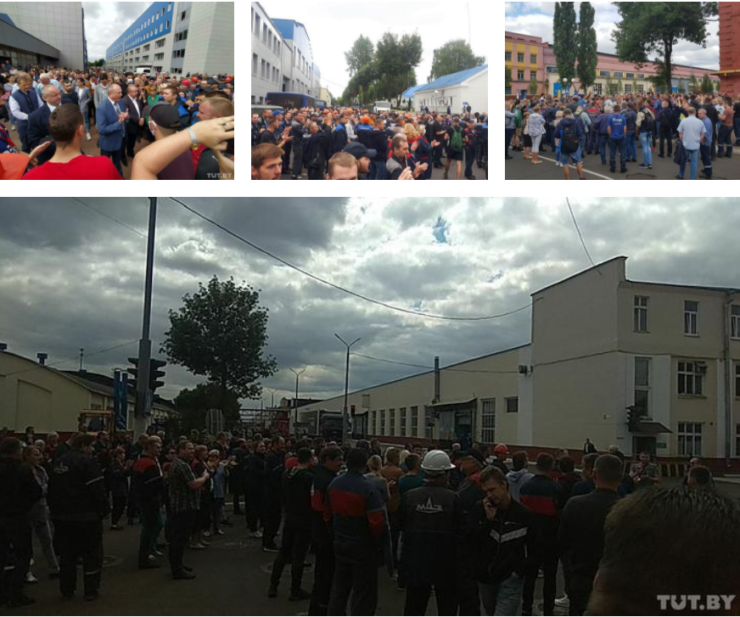In Belarus, Women form Solidarity Chains, Doctors and Factory Workers Organize Strikes

In Belarus, the human chains formed by women spread again on the streets of the capital, but also of the big Belarusian cities. Several doctors have organized solidarity actions with the victims of law enforcement in recent days, and workers at major Belarusian factories such as MAZ or BELAZ have organized strikes.
Belarusians continued protesting against the results of Sunday’s presidential election. According to the Belarusian Electoral Commission, Alexander Lukashenko won the election by more than 80 percent. People are demanding the recount of votes, accusing Lukashenko of election fraud.
Since election night, fierce clashes have taken place on the streets of Belarusian cities, and images of police and special forces violence have swept the planet.
In the first three days, the Interior Ministry announced that it had detained about 6,000 people, and Lukashenko accused some foreign puppeteers and said that alcoholics, drug users, unemployed people, and people with criminal records were taking to the streets.
On August 12, hundreds and thousands of women in white took to the streets in solidarity with the victims of militia violence, and the action has become national and continues today. The women continued the protests, forming solidarity chains.

Also in protest and solidarity with the protesters, several doctors came out in spontaneous actions.

Workers from large Belarusian companies also staged spontaneous strikes and demanded a recount of votes and the release of political prisoners.

Immediately after the results of the official exit poll were announced, the wave of protests in Belarus started. According to the data presented, Lukashenko, who has been in power since 1994, would have accumulated 79.7 percent, while the opposition candidate, Svetlana Tikhanovsky, was quoted with only 6.8 percent. The whole campaign was full of violations, and three representatives of the opposition were taken out of the race and arrested.
On election day, several voters and journalists reported other irregularities. Huge queues formed at many polling stations, but people were only allowed access to polling stations in small groups as an anti-COVID measure19. Several ballots were also reported, which had already ticked the option under Lukashenko, but the police did not intervene at the request of a voter.



